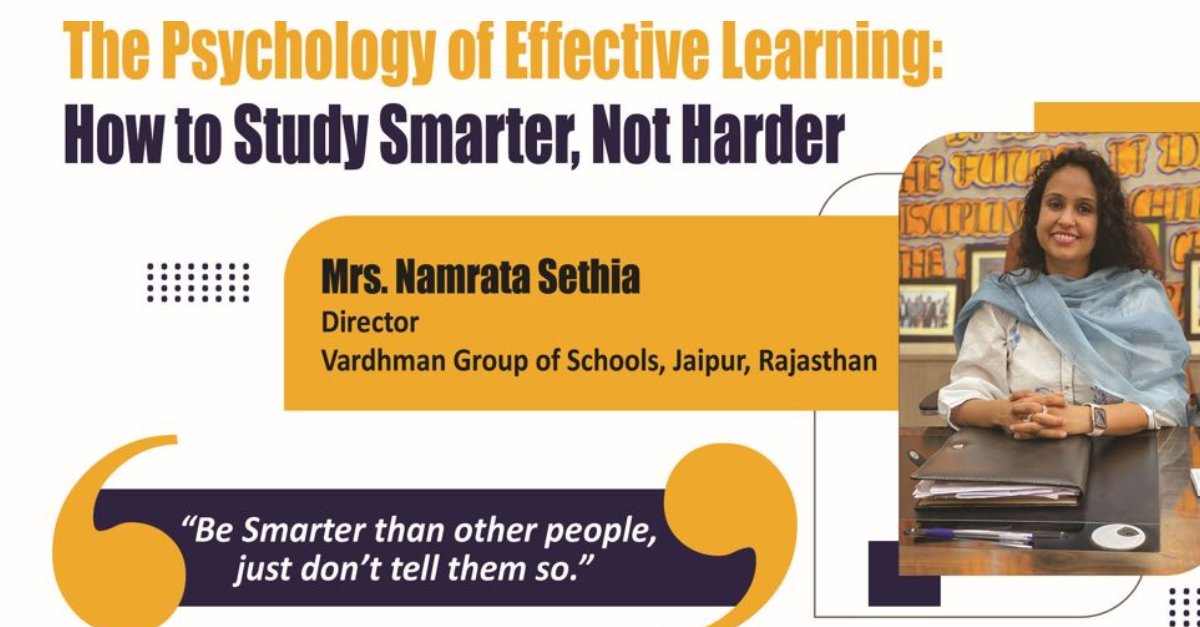The Psychology of Effective Learning: How to Study Smarter, Not Harder
“Be Smarter than other people, just don’t tell them so.”
The psychology behind effective learning encompasses certain strategies that can aid in the retention and application of the knowledge acquired. Such strategies and techniques take learning to a higher level with minimum time and effort involved. The saying – ‘Studying smarter, not harder’, is about optimizing your approach to learning to maximize efficiency and effectiveness. Engaging in active learning techniques, such as questioning, summarizing, and teaching the material to someone else, reinforces comprehension and retention.
1. To maximize learning, the most essential and requisite quality is prioritizing the goal as needed and managing the time efficiently. Family time and recreation should also get space in one's schedule as these short intervals provide a healthy respite from a rigorous academic schedule and help in improving focus.
2. Recognizing your learning style is a crucial element of studying smarter. Tailoring your study methods to align with your learning style enhances comprehension and makes learning more enjoyable.
3. The study sessions should be planned very meticulously with SMART short-term and long- term goals that are to achieve learning outcomes. Not only that, the goals must be measurable and achievable as well in the planned time frame which must not only be realistic but ambitiously made to meet the result. This will provide a sense of accomplishment as the learner progresses.
4. Your study environment also plays a significant role in your learning experience. Minimizing distractions, creating a dedicated study space, and ensuring comfort optimize concentration.
5. Self-assessment is a potent tool that helps identify areas that need further attention. Use a highlighter to emphasize important points in your notes.
6. Reviewing what you’ve learned is important; it may help you clear any questions you had, form new connections, and understand concepts in ways you haven’t realized before.
7. The psychology of effective learning also emphasizes the importance of sleep and overall well-being. Adequate sleep is essential for memory consolidation and cognitive function. Balancing study with proper nutrition, exercise, and relaxation ensures a holistic approach to learning, contributing to improved academic performance.
In conclusion, studying smarter, not harder, is the key to mastering the art of learning and achieving sustained success in academia and beyond. Understanding individual learning styles, optimizing time management, creating conducive study environments, and incorporating self-assessment are all integral to unlocking your full academic potential.


Comments